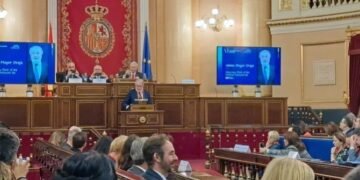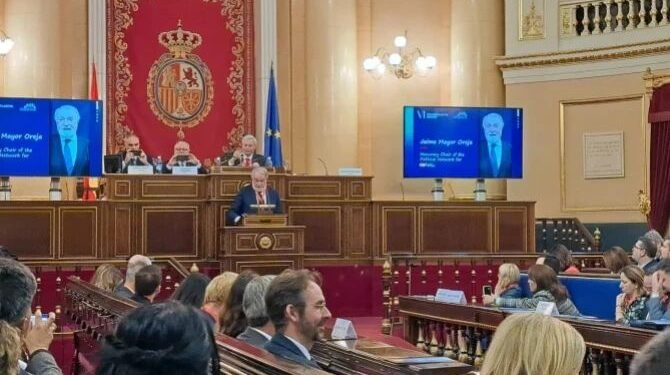By Charles Igwe
Jaime Mayor Oreja, the organizer of the pro-life and pro-family summit held December 1–2 in Spain’s Senate chamber, emphasized the Christian stance amidst societal pressures to suppress expressions of faith. “Faith is not imposed, but it doesn’t hide,” he declared, summarizing the Christian response to cultural opposition.
“They call us fundamentalists because we defend the foundations [of society]. But it’s the opposite, because we defend the regeneration of the Western world,” Mayor argued. He described the group’s role as being “at the forefront of the debate of the future,” which he defined as a divide “between those who don’t believe in anything and those who want to believe and have permanent [points of] reference.”
Mayor underscored the importance of remaining steadfast in defending life and Christian values, urging attendees to resist fear. “The defense of the right to life is the foundation, the pillar of all our positions within this cultural debate,” he affirmed.
“Let’s not lose our cool, as they are losing theirs with us,” he added, calling for a measured yet unwavering commitment to truth. “By the solidity of our foundations, not by embracing extremism, let us know how to fulfill our obligation to the truth: to tell the truth, to defend the truth, and also sometimes to suffer for the truth.”
The summit, themed “For Freedom and the Culture of Life,” drew 300 political and civic leaders from 45 countries across three continents.
Spain’s former Minister of the Interior and honorary president of the Political Network for Values (PNfV) condemned what he termed a “sick obsession against the Christian foundations [of society], the contempt for science and biology, and the perverse manipulation of history” by groups opposing the event. Despite these challenges, the summit proceeded as planned.
Ahead of the summit, Archbishop Bernardito Auza, apostolic nuncio in Spain, celebrated Mass at the Monastery of the Incarnation near the Senate chamber, where a small group of abortion advocates protested.
During his homily, Archbishop Auza highlighted the centrality of human dignity, as articulated in Dignitas Infinita. He described it as the “fundamental principle and basis of our culture,” asserting that without this recognition, “it would not be possible to live in society.”
The prelate emphasized that human dignity transcends circumstances and must be protected “in every cultural context.” He thanked summit participants for their commitment and encouraged them to continue “educating the conscience of many to recognize the centrality of human dignity.”








































